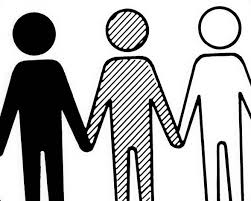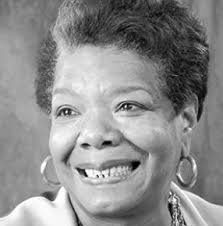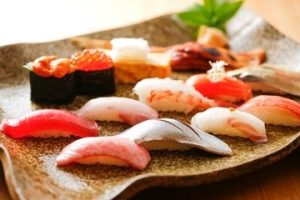I woke that morning feeling like I had little to no sleep, yet when I sneaked a glance at my clock I could see the one and zero’s staring me down. 10:00. Well that’s strange. My brain wished for an early morning but my body seemed to disagree. Slowly but surely, I lifted myself out of my bed, the wooden panels creaking with every movement. When my body reached a full 90 degrees I could smell the bitter aroma of coffee beans, and I could hear the voices of people. When I finally reached the door, it hit me: I was leaving for Hawaii. This one thought simultaneously jump-started my brain, like a cold, clear mass of water, careening towards my face. My brain moved into action, not long before my legs. They raced around the room, searching for all preparations. Suitcase? Check. Carry-on? Check. Tacky tourist clothing? Check. I was ready. Without a thought, I raced outside and greeted my parents with a childlike glee.
“Good Morning.”
My parents questioning and confused looks met my sheer delight. I opened my phone. Checked the date. Looked down, sulked back to bed, and fell into the soft embrace.
“Good Night.”
The next day I triple-checked the date with my phone, calendar, and annoyed older brother. The early morning drive into the airport parking passed without a hitch. When my muscles strained and shook to open the car door, I knew it was time. The harsh, bleak fog met with the bitter cold to create an atmosphere which attacked my lifeless body. If I squinted hard enough I could see Santa Claus waving at me with his big parka jacket and red mittens. Then I blinked again and it was my dad ushering me forward.
“Vamanos, we only have three and a half hours until the plane leaves.” He said with a serious face. It was at this point that my, and my family’s sanity came into question. I could see the security greeting me, the metal detector beeping, and the P.A. system yelling for people to board the plane. What idiot. Who Misses their flight? I checked the ticket and through the arcane writing I resolved that we were heading to gate A22. I observed the room, seeing all manners of people: unshaven faces, the smell of sweat as some ran towards their gate, and the early people, sipping their coffee in a quaint café. Though it was a full hour before our flight, we still rushed towards the gate in a swift yet collected manner. I sat down in the ocean blue seats and rested my head against the cool metal. Reaching towards my bag, I unwound my headphones and attached them to my phone. I took a while figuring out the airport Wi-Fi before giving up and heading towards my Netflix downloads. 30 minutes in, my stomach starts growling, like a tiger on the loose. I forgot that I haven’t eaten breakfast yet. Oh well, I don’t want to risk missing the flight so I stay seated. My mom, on the other hand, has a different idea. She leads me towards Tim Hortons with the promise that we will make it back in time. We stand in line as my fingertips tap my jeans as I stare at the clock. Tick-tock. Tick-tock. Tick-tock. We make it to the counter.
“Hello, how may I help you?”
“I’d like a double-toasted, blueberry bagel with herb and garlic cream cheese.”
“Is that all?” she said, pausing for a moment to check our faces. “That’ll be $2.50.”
We head back to the gate to eat but my mom decides to stay here and eat with me. Tick-tock. Tick-tock. Tick-tock. I eat the first half of the bagel and check the time. Tick-tock. Tick-tock. Tick-tock. The loud customers speak all around me. Tick-tick. Tick-tock. Tick-tock. The P.A. system murmurs something but it’s too loud. Tick-tock. Tick-tock. Tick-tock. Three-quarters in. Tick-tock. Tick-tock. The P.A. system speaks with more urgency as my nerves hit their peak. I ravenously bit into my bagel. Tick-tock. I devour the last bits and throw the wrapper into the garbage. I check the time. Tick-to. We start running. Tick. I begin to make out frantic waving as the operator starts giving up. Ti-. We make it just in time and run into the plane. We are promptly lead to our seats as we avoid the angry gazes of other passengers. I reach my seat and rested my tired haunches against the soft backing of the chair. I stretched out my legs and thought, this is the last time I listen to my mom, from now on I listen to my own safety-blanket instincts.
Reflection:
I think that I was able to tell a story well in the way that I did it and was able to expand on a simple story and tell it in a different way. And I was able to use suspense in a way that made sense in a narrative essay of this nature. The moral of the story came off as added in at the end instead of being the focus of the story
I think next time I should improve on using the rule of three’s, interweaving past-tense into a present tense piece and using inference and “show don’t tell” in a more clear and concise way. Instead of writing it the way I did, all in one go, I should’ve planned it more detailed way before I started writing so it would come off as more consistent.






